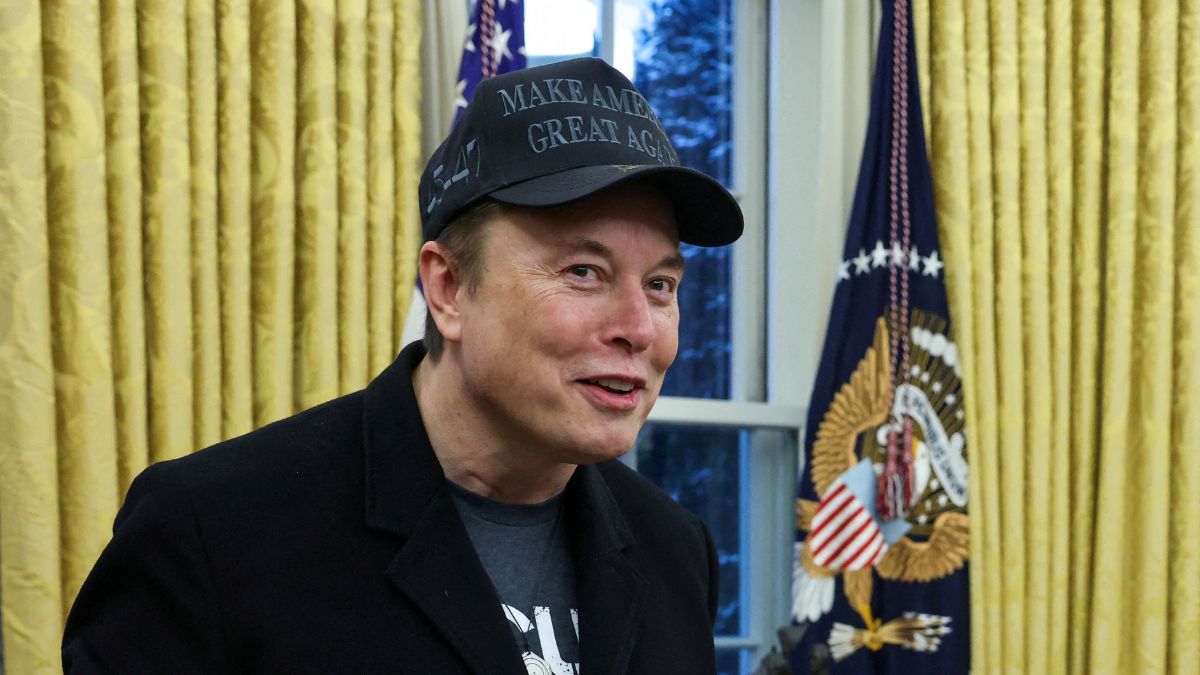United States special government employee Elon Musk has proposed a plan that could potentially send American taxpayers a $5,000 rebate check.
The idea, dubbed the “Doge Dividend,” stems from the Department of Government Efficiency (Doge), a cost-cutting initiative under US President Donald Trump’s administration.
The proposal, first suggested by James Fishback, CEO of investment firm Azoria, aims to distribute 20 per cent of the savings from government cuts back to taxpayers.
Fishback elaborated on the concept in a post on X, stating, “American taxpayers deserve a ‘Doge Dividend’: 20 per cent of the money that Doge saves should be sent back to hard-working Americans as a tax refund check. It was their money in the first place! At $2 trillion in Doge savings and 78 million tax-paying households, this is a $5,000 refund per household, with the remaining used to pay down the national debt. @ElonMusk, let’s do this! This is how we rebuild trust in our government.”
Musk responded, “Will check with the president,” and shortly thereafter, Trump publicly endorsed the concept at an investment conference in Miami on Wednesday.
Will check with the President
— Elon Musk (@elonmusk) February 18, 2025
Trump stated, “The numbers are incredible, Elon, so many millions, billions, hundreds of billions. We’re thinking of giving 20 percent back to the American citizens and 20 percent to pay back debt, pay down debt.”
Can Washington really deliver a $5,000 rebate?
While the proposal has generated excitement among some Americans, financial and policy experts remain sceptical. The $2 trillion in savings Musk envisions would require sweeping budget cuts, impacting critical programmes such as Medicare, Medicaid, and the US Department of Defense.
So far, Doge has identified just $55 billion in cuts, mainly from slashing government contracts and federal workforce layoffs.
Some of the largest cuts have targeted the United States Agency for International Development (USAID) , with its funding slashed by $420.14 million, and other agencies such as the Food and Drug Administration, National Institutes of Health, and the Centers for Disease Control and Prevention.
Jessica Riedl, a senior fellow at the Manhattan Institute, pointed out the impracticality of the proposal. “Given the very small share of federal spending that has been reduced, the American people could possibly take their dividend to Starbucks for half off of one coffee,” she told The Washington Post.
Moreover, any rebate would require congressional approval, which remains uncertain. House Republicans have been proposing budget plans that would add $4.5 trillion in new deficits through tax cuts while cutting $2 trillion in “mandatory” spending that funds social programmes.
Meanwhile, the national debt is expected to increase by roughly $20 trillion over the next decade, according to the nonpartisan Congressional Budget Office.
Is Musk even allowed to do this?
Musk has been given sweeping but legally questionable authority by Trump to oversee federal cost-cutting measures through Doge, despite the White House asserting in court documents that Musk does not hold official decision-making power.
His actions — including mass layoffs and the cancellation of government contracts — have triggered lawsuits and constitutional scrutiny .
Additionally, some experts believe that Doge’s savings may be exaggerated. The programme’s savings fall far short of Musk’s $2 trillion target, and even if those savings were achieved, it would require drastic and politically contentious cuts to key federal programmes.
“If [the Doge dividend proposal] is real, you have to have a way of estimating and collecting the amounts that are being saved and putting them into some account. Both OMB and CBO would look at that, and then Treasury would then record those amounts,” F Stevens Redburn, a former Office of Management and Budget official and George Washington University lecturer, told Politico.
Why is this a golden chance for Trump?
The idea of issuing government checks is not new for Trump. During his first term, he pushed for stimulus checks during the COVID-19 pandemic and insisted his name be printed on them.
He has since expressed regret that his successor, Joe Biden, did not do the same for later relief payments. At a speech in Miami, Trump said, “By doing this, Americans will be telling us where there’s waste, they’ll be reporting it themselves.”
Biden, reflecting on his decision not to sign relief checks, admitted in a 2024 speech at the Brookings Institute, “I signed the American Rescue Plan, the most significant economic recovery package in our history, and also learned something from Donald Trump. He signed checks for people for 7,400 bucks … and I didn’t. Stupid.”
Trump understands the power of being associated with money landing in people’s bank accounts. If a Doge Dividend ever materialised, there’s a good chance it would have Trump’s name on it, reinforcing his image as a leader providing financial relief to Americans.
Despite Trump’s enthusiasm and Musk’s influence, significant hurdles stand in the way of the Doge Dividend. The legality of Doge itself is already facing court challenges , and major budgetary decisions must go through Congress.
Additionally, with a Republican-controlled Congress focused on massive tax cuts, lawmakers may prioritise those over rebate checks.
Some House Republicans argue that any government savings should be directed toward reducing the national debt rather than issuing stimulus checks. Others view Doge savings as a potential funding source for extending tax cuts from Trump’s first term.
Whether Americans will actually see $5,000 checks remains uncertain.
With inputs from agencies


)

)
)
)
)
)
)
)
)



